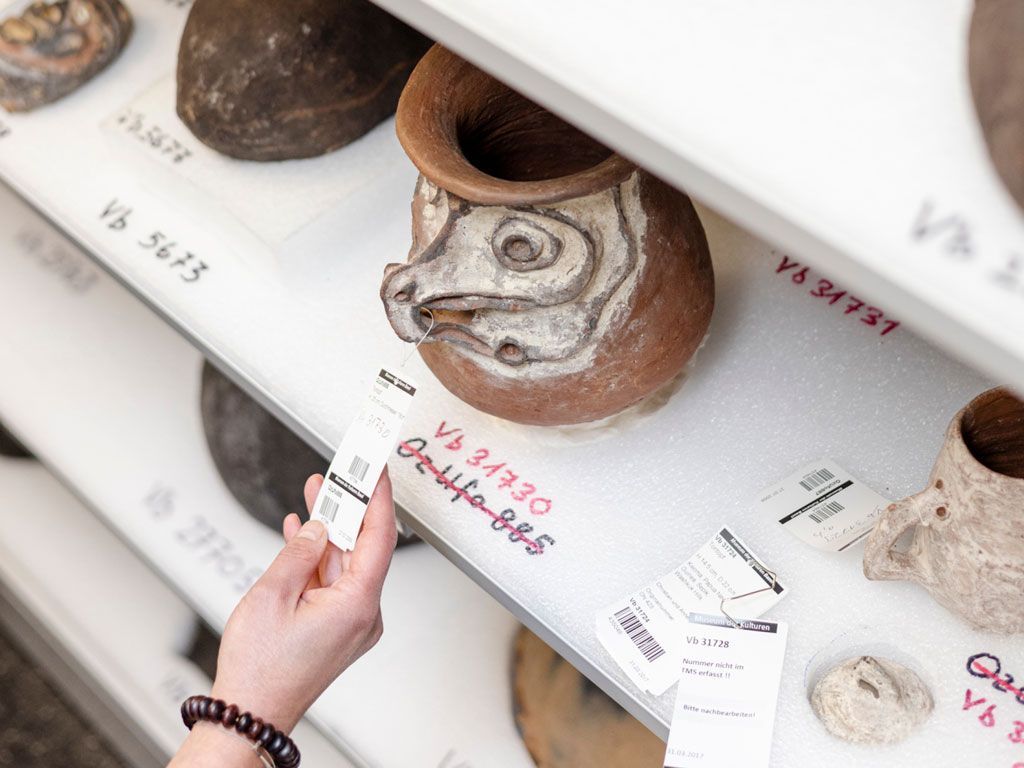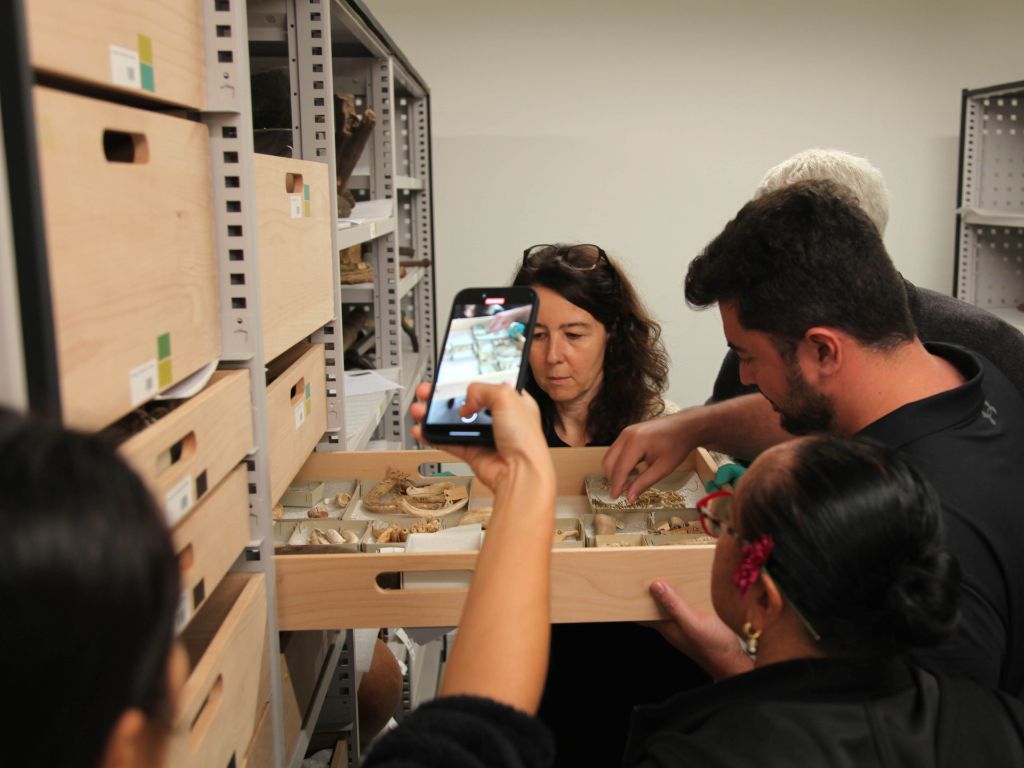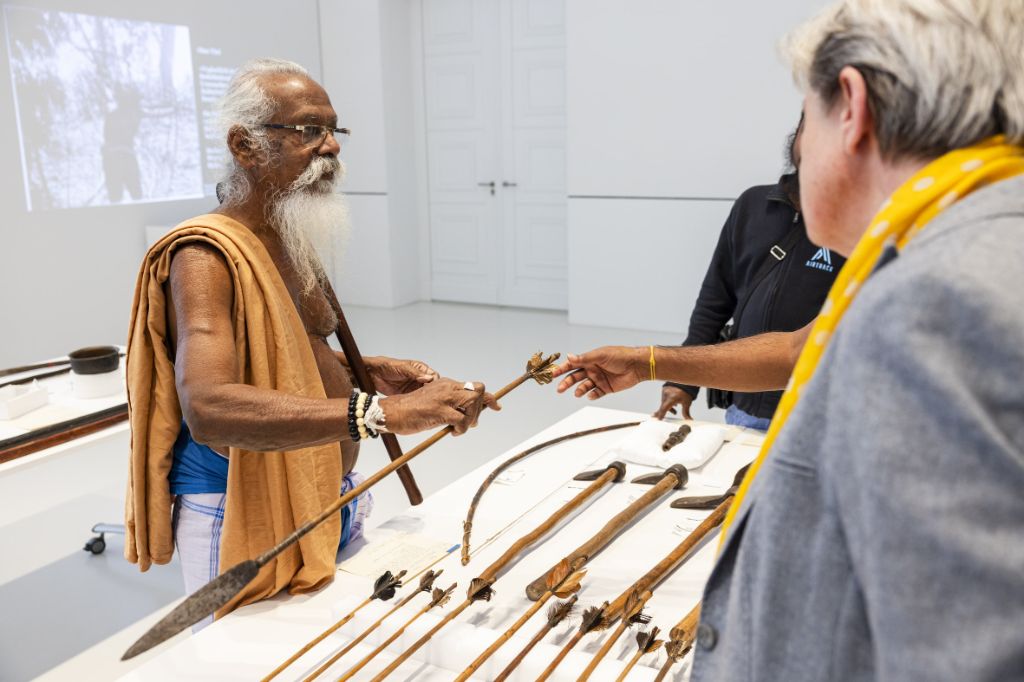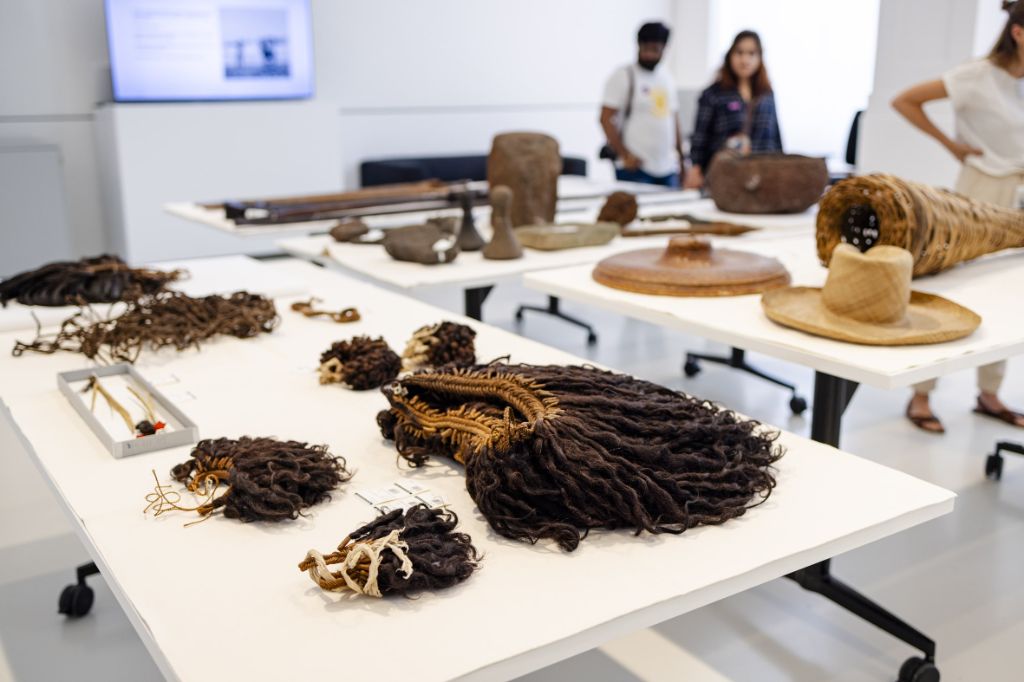Openness and transparency
The MKB seeks transparency in every regard – hence its "In Full View" series.
Before their very eyes, visitors will see processes unfold that reveal a different view of the MKB's history, but also more recent developments that have left their mark on the institution.
"We no longer automatically consider objects to be the sole property of the MKB; the prerogative of interpretation no longer lies solely with us either now", according to the Museum's director Anna Schmid. "More importantly, it's open to debate whether Western scholarship here takes priority over other forms of knowledge."
The MKB's attitude has been further consolidated through dialogue with other cultures. These have always been taken seriously. "It goes without saying that we are open to other worldviews. However, it is now also becoming increasingly self-evident that communities of origin have the prerogative of interpretation over items in our keeping. We can only learn from that", Schmid stresses.
Questions raise further questions
The series shows, moreover, that the MKB has taken on board the new definition of a museum, as recently agreed by the International Council of Museums, ICOM: MKB is also a "caretaker". It owes a duty of care to the items entrusted to it, and facilitates whatever the future holds in store for them. For instance, when it receives enquiries about specific items, or when guests or staff come across unusual items or archival documents while doing research. It is then at the latest that the question of provenance arises.
Each project gives rise to further questions: how did items enter the MKB's collection? In what context? What were they used for before? And today? Who thinks they are important? For whose benefit do they need to be made available?
Some things will remain hazy. Perhaps new avenues will open up, or new contacts will be found with whom the future of objects can be discussed, negotiated and realized: from lending to the circulation of objects to restitution, everything is possible.
A variety of research projects
"In Full View" will make museum visitors aware of all this while giving them insights into the sheer variety of the MKB's research projects. No two are alike; all require different preparations, a different approach, different tasks, and negotiations as well as a different understanding.
Take the lienzo, for instance: it is a kind of genealogical map from Mexico. Only a copy of it was requested to allow the town that originally owned it to work with it. Moreover, the town need not fear that the original will vanish into some underground government vault. In addition, collaboration with MKB is and remains guaranteed, according to expressive wish on their part.
The "Benin Bronzes" have generated a lot of media attention. They are considered the property of Nigeria, or more exactly the Benin royal family, and quite soon a request for their return might possibly be made. The return of the thulu tree to Australia has now been agreed and approved. As a quid pro quo, the MKB is set to receive a different object from the respective Kamilaroi community.



